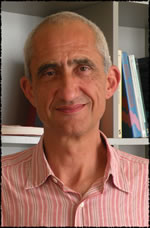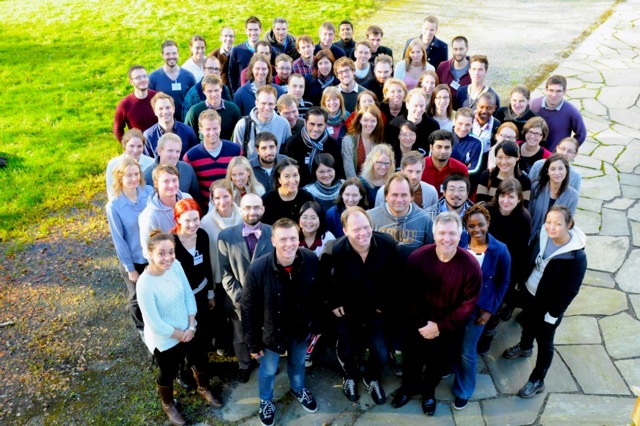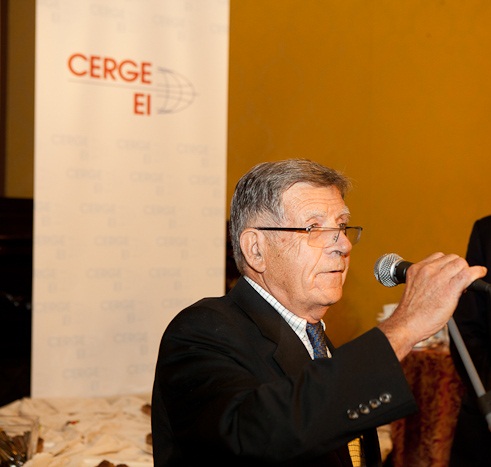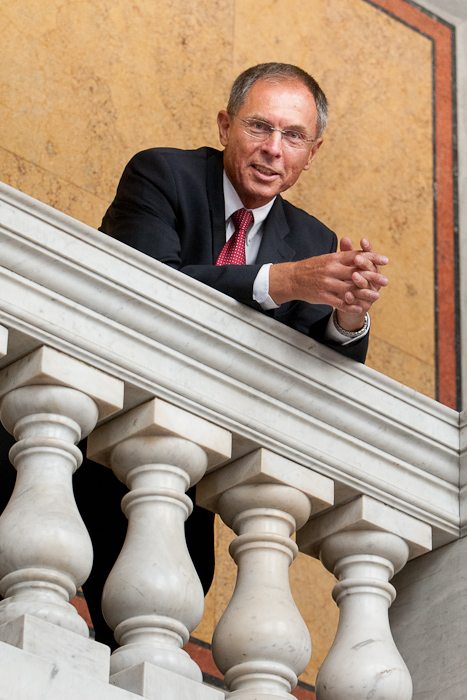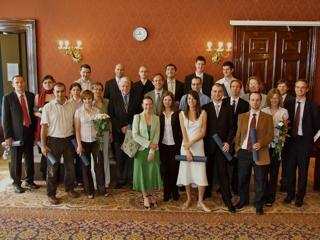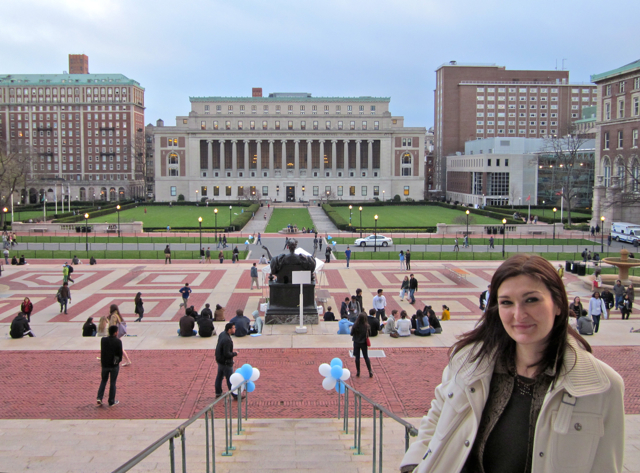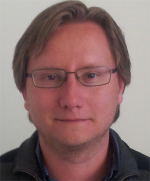 Earlier this month, Dr. Nathan Fiala came to CERGE-EI to lecture about his research in Africa. The lecture was titled “Employment Generation in Rural Africa: Mid-term Results from an Experimental Evaluation of the Youth Opportunities Program in Northern Uganda.” Dr. Fiala sat down with CERGE-EI for a brief interview where he discussed his current research, the morals of sustainable development, and the expedience of experimental methods. Have a look!:
Earlier this month, Dr. Nathan Fiala came to CERGE-EI to lecture about his research in Africa. The lecture was titled “Employment Generation in Rural Africa: Mid-term Results from an Experimental Evaluation of the Youth Opportunities Program in Northern Uganda.” Dr. Fiala sat down with CERGE-EI for a brief interview where he discussed his current research, the morals of sustainable development, and the expedience of experimental methods. Have a look!:
What research are you currently working on?
Right now I am doing randomized control trials. This is a big, new, exciting field. In the last ten years it has become a special interest to a lot of developmental economists. I am conducting experiments in Africa, mostly in Uganda, but also India, and hopefully a few coming up in Kenya.
One that I’m working on right now is a ‘Cash Grant’ program, geared toward young men and women who are unemployed or underemployed in Uganda. The government has transferred money to them in order to help them set up businesses and gain some kind of employment and income generation.
There is a lot of unemployment and underemployment in Uganda, and very little formal sector employment. So for a lot of young people there, setting up their own business is basically the only option that they have. But there is doubt whether these types of ‘Cash Grant’ programs have any real impact, whether they provide any kind of meaningful help for individuals.
In order to explore this, we randomized who received the cash grant and who did not receive the cash grant. We did that because we wanted to try to compare those that received the cash grant with some kind of comparison group. It has to be a very well thought out comparison group, and randomization gives you the opportunity to basically ensure that with a large enough sample size. The people who receive the program versus those who do not receive it still have the same characteristics. They’re about the same age on average, the same ratio of gender, the same education levels, etc. But most importantly they have the same level of excitement and interest in starting their own businesses.
Is there anything unique about doing research in Uganda?
Well one of the unique things about this is that it’s a program being conducted in a post-conflict area. It’s in Northern Uganda, which just finished a 20-year civil war. The government is interested in how to decrease the likelihood of civil unrest, violence, and proclivity to anti-social behavior. They hope these cash grant programs will cause citizens to become more productive citizens and less likely to engage in negative social behavior.
Continue reading Understanding Development in Africa: An Interview with Dr. Nathan Fiala →
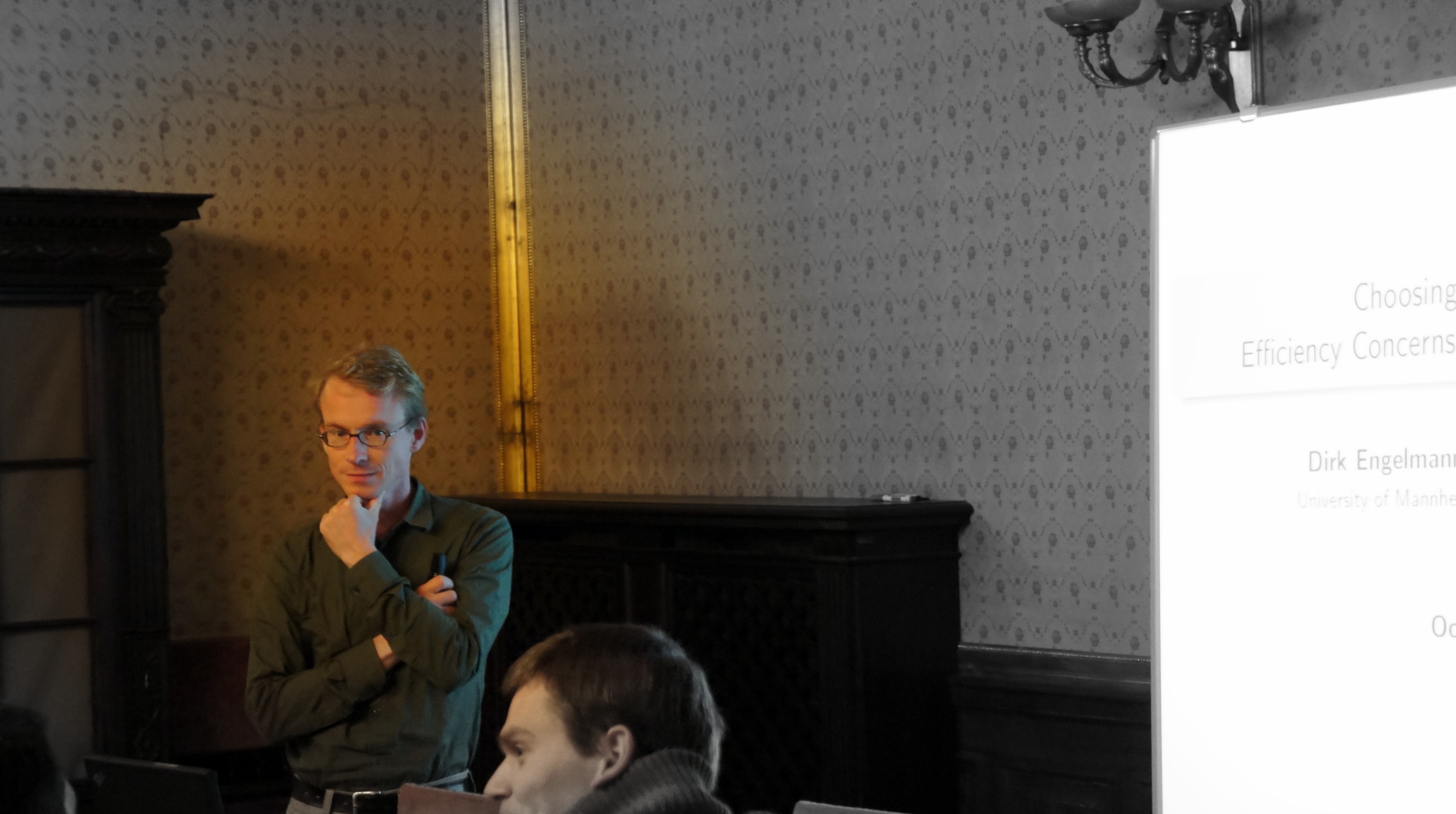 Professor Dirk Engelmann was back at CERGE-EI; this time to share his latest research on the intriguing behavioral science of voting. Now a Professor at the University of Mannheim and Director of the Experimental Economics Laboratory, Engelmann was a Reader and Professor of Economics at Royal Holloway, University of London and an Assistant Professor here at CERGE-EI before limiting that role to a senior researcher. He is currently a member of the editorial board of the American Economic Review, associate editor of The Economic Journal and co-editor of the Journal of Economic Behavior and Organization.
Professor Dirk Engelmann was back at CERGE-EI; this time to share his latest research on the intriguing behavioral science of voting. Now a Professor at the University of Mannheim and Director of the Experimental Economics Laboratory, Engelmann was a Reader and Professor of Economics at Royal Holloway, University of London and an Assistant Professor here at CERGE-EI before limiting that role to a senior researcher. He is currently a member of the editorial board of the American Economic Review, associate editor of The Economic Journal and co-editor of the Journal of Economic Behavior and Organization.
